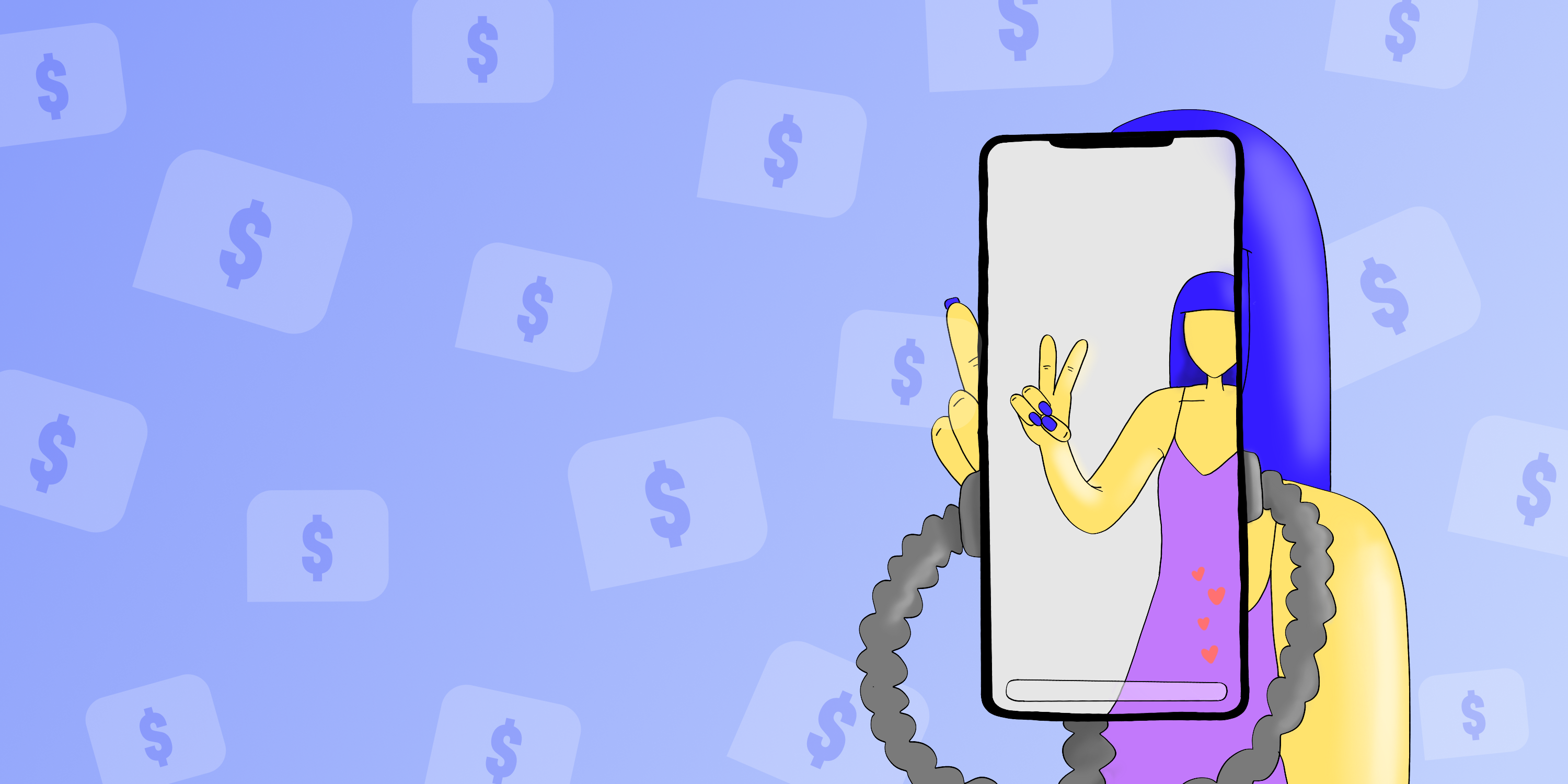
46% of People Say That Their Mental Health Will Be Affected the Most If Student Loans Are Not Reversed
Additionally, more than half of survey respondents said they will need to take on a second job to make their loan repayments
This is some text inside of a div block with Cleo CTA
CTASigning up takes 2 minutes. Scan this QR code to send the app to your phone.

From Robinhood to Binance to online poker, it’s never been easier to place a bet. Here’s what to look for and what to do when things get serious.

As a money app, we talk a lot about personal finance. We also know, as Biggie Smalls said, that money can bring a whole lot of problems.
And recently we noticed some trends that we wanted to talk about.
Thousands of Cleo users spent more than $1000 on gambling in the past month. On average, it’s nearly 1/3 of their take-home pay and 1 in 5 of them had overdraft fees or insufficient-funds.
So. Literally no judgement here, but we thought it might be helpful to kick some stigma in the mouth and talk about what addictive gambling looks like. And if you’re struggling, where you can find help.
Obviously, we’re not mental health professionals. But we have compiled resources from trusted professionals to answer the big questions around gambling addiction and point you (or someone you love) in the direction of help.
The severity of gambling problems differs from person to person. ‘Problem gambling’ is the term for any gambling behavior that disrupts your day-to-day life. If you’re preoccupied with gambling, spending more and more time and money on it, chasing losses, or gambling despite serious consequences in your life, you have a gambling problem.
Gambling addiction is when the urge to gamble becomes uncontrollable. You can’t control the impulse to gamble, even when it has negative consequences for you or your loved ones.
Most people aren’t even aware their gambling behavior is a problem. Only 21% of incarcerated people known to have a gambling addiction thought their gambling was problematic.
As many as 10 million Americans live with gambling addiction. It is easier than ever to access gambling sites through our mobile phones.
The short answer: gambling stimulates the same part of the brain as drugs like cocaine.
Scientific American explains it like this: When we engage in an activity that keeps us alive, our brain releases a chemical messenger called dopamine, giving us a little wave of satisfaction and encouraging us to make a habit of that activity - for example, eating a hearty meal.
When stimulated by amphetamine, cocaine, or other addictive drugs, this reward system releases ten times more dopamine than usual.
Addictive substances keep the brain producing so much dopamine that it eventually adapts by producing less of the chemical and becoming less sensitive to its effects. As a consequence, addicts build up a tolerance to a drug, needing larger and larger amounts to get high.
It’s only in the past 10 years that gambling has been classified as an addiction in psychiatry. Hopefully, this new classification means the stigma around gambling addiction is lessening. In the past, gambling was dismissed as a lack of willpower, but now specialists are able to recognize the severity of gambling addiction.
Gambling addiction can affect anyone from any walk of life, it isn’t a reflection of character type. People who suffer with gambling addiction often also suffer from underlying conditions such as unmanaged ADHD, stress, depression, anxiety, or bipolar disorder.
Dr. Timothy Fong, Addiction Expert and Co-Director of the UCLA Gambling Studies Program, explained that “without a doubt, we know it’s an actual brain disease. That’s very different from 20 years ago when people saw it as an issue of morality, greed, and lack of willpower. There are brain changes that explain why people can’t stop.”
As mentioned, gambling addiction is often accompanied by underlying mental health conditions.
Although it may feel like you’re powerless to stop gambling, there are plenty of things you can do to overcome the problem and recover your financial health.
The first step: talking to someone. It’s best to seek help from a medical professional who can tailor a recovery plan to your particular circumstances, but in the meantime consider reaching out to a loved one so that you can begin addressing your problem.
Alternatively, the National Problem Gambling Helpline can be reached on 1-800-522-4700 and offers 24/7 confidential support.
Gamblers Anonymous provides a support network for those struggling with problem gambling. Using their website, you can locate a meeting near you. They also provide a support hotline.
First and foremost, look after yourself. Gamblers Anonymous also provides support groups for friends and family.
Remember, gambling addiction is never an excuse for abusive behavior, whether physical or emotional. Set boundaries with lending money.
The most important thing you can do is point your loved one in the direction of professional help, starting with the resources listed above.
SAMHSA’s National Helpline is open to both individuals and family members facing mental and/or substance use disorders. You can reach it on 1-800-662-HELP (4357).
Enjoy this post? Give it a share or send it along to a friend. You never know, it could make a big difference. And of course, if you want to try the best money app in the world for free, just hit this link right here.
Big love. Cleo 💙

Additionally, more than half of survey respondents said they will need to take on a second job to make their loan repayments

How much does the average 20-year-old TikToker spend in a week? Probably more than you and me.

From the birth control pill to the implant, here’s how to access birth control for free or a low-cost

